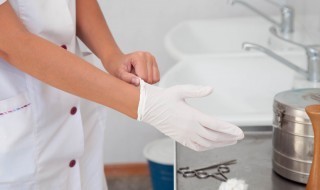 Irene Black talks about why standard infection control standards are paramount for every practice.
Irene Black talks about why standard infection control standards are paramount for every practice.
What impact has HTM 01-05 had on the dental industry?
The introduction of HTM 01-05 has certainly driven change within the profession across England and Wales and undoubtedly raised awareness of decontamination and infection control standards, whilst highlighting where improvements need to be made.
There’s no doubt infection control standards have been raised significantly in the past decade. In terms of moving forward and continuing its success, facilitation will be key to that process. You must bring people with you and convince everyone it is possible to integrate effective procedures into everyday activities until it becomes engrained behaviour.
Although HTM 01-05 doesn’t apply in Scotland, the general principles in the equivalent Scottish guidance are identical. Guidance is instrumental in improving practice standards and following this will enable our profession to apply best practice as far as infection control and decontamination is concerned.
In your opinion, what has been the driving force to improving infection control standards?
I believe patient perception has been a major force, primarily because expectations have increased enormously. These days you can’t open a newspaper without reading about patient safety or the transmission of infection. That, alongside improved GDC standards, has made a profound impact.
What are the challenges to meeting infection control standards?
As with most things it’s the time, cost and changing people’s attitudes and behaviour that are the biggest challenges. In terms of infection control, there’s a perception that this is an additional process on top of all the other duties practices are required to perform, but by implementing the correct procedures and explaining how they can efficiently be integrated into a practice’s day-to-day activity rather than an extra task, infection control standards can be easily raised. Cost-wise there will be initial capital costs, and then on-going costs, so efficiency will be key.
Is there any advice you would give to practices?
My general advice would be to buy items that are single-use such as clinical gloves, aprons and facemasks that are changed and disposed of after each procedure and between patients.
Personal protective equipment (PPE) is an essential part of barrier protection in infection control and suitable PPE must be worn for specific jobs. Any PPE that is poor quality, easily torn or damaged, or too porous is likely to be inappropriate.
Practices should look for products, equipment and processes that are effective and avoid something that adds significant time to tasks. This can be seen as an additional financial burden to a practice, so there is a need to choose reputable suppliers who reward you through guaranteed high quality products at reasonable costs.
During cleaning routines there is a risk to staff of contaminated fluids such as blood and saliva splashing onto the face, so proven and reliable facemasks and eye protection must be worn. Masks and gloves should also ideally be hypoallergenic and latex-free to prevent discomfort and reduce the risk of skin irritation.
The cleaning and maintenance of dental equipment is crucial to any practice’s daily routine and I would certainly recommend self-sealing pouches for putting instruments in, before they go into a vacuum autoclave. Items such as three-in-one tips are essential, but in my experience anything that’s got a fine bore, no matter how hard you try to clean it, it is never going to be absolutely successful. A simple, high quality and low-cost solution is disposable three-in-one syringe tips, boasting separate air and water channels and effectively minimising any cross-contamination risk.
How important is it that practices undergo training and what is available to them?
Extremely important! Any practice struggling to implement adequate infection control procedures should look to companies and professional associations that can supply expert training in HTM 01-05 and Care Quality Commission procedures. The best advice I could give, and as recommended under the Code of Practice, is to nominate an experienced team member to take responsibility, and regularly audit and review processes to continually look for where improvements can be made.
For more information about protecting and training your team in infection prevention and PPE contact Dentsply UK on 0800 072 3313 or visit www.dentsply.co.uk.
Purchase any of the Dentsply Sultan healthcare products via Dentsply Rewards and you can earn Rewards £s to help your practice budget go further, whilst staying HTM 01-05 compliant at www.dentsplyrewards.co.uk.
Access free CPD (continuous professional development) webinars and product demonstrations at www.dentsplyacademy.co.uk.
Facebook: DENTSPLY UK
Twitter: DENTSPLY_UK


